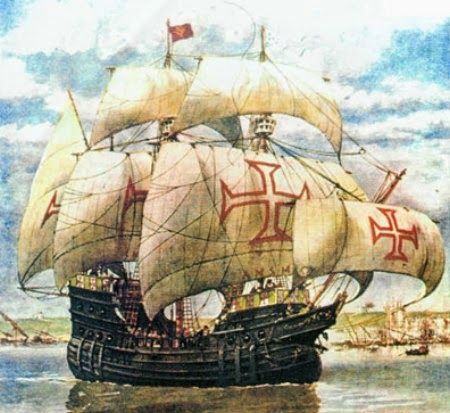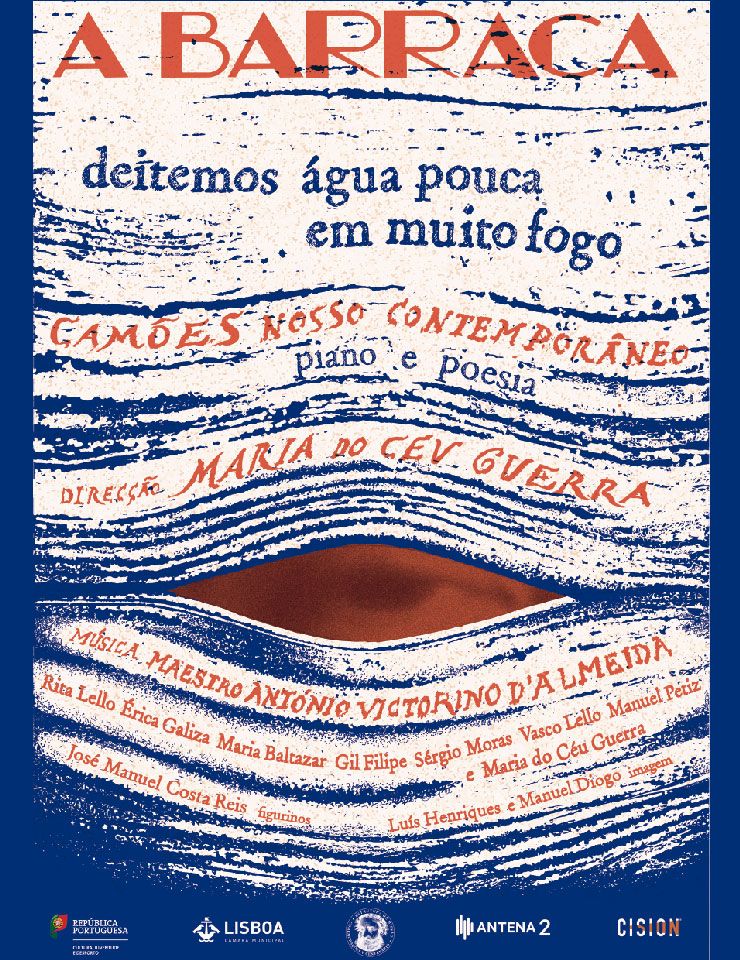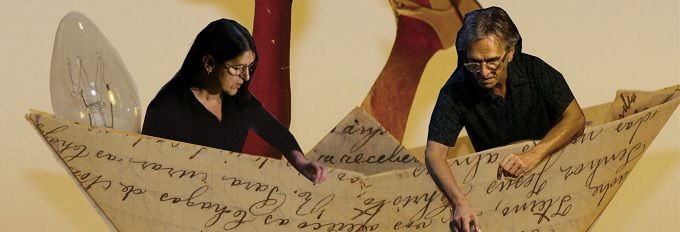Obras de referência da cultura portuguesa
"OS LUSÍADAS"
de LUÍS DE CAMÕES
Análise de Miguel Real
Tradução de Alexandra Leitão

Narrativa central do nosso Renascimento, Os Lusíadas, de Luís Vaz de Camões (c. 1531 – 1580) constitui-se igualmente como a bíblia de Portugal ou como o livro-síntese da história do destino e da singularidade de Portugal no mundo.
Em primeiro lugar, nele repousa a memória da diferenciação entre Portugal e Castela ou a definitiva distinção entre o reino de Portugal e os restantes reinos da Ibéria. Camões representa Viriato como o "patriarca" militar dos portugueses, o modelo originário e o motor de heroísmo a partir dos quais se conformam todos os feitos ilustres dos portugueses, seja enquanto defesa bélica do território português, seja enquanto promotor "Da Lusitânea antiga liberdade" (I, 6), isto é, dos valores da liberdade e independência nacionais, seja, ainda, enquanto exemplo militar e moral dos feitos que os Portugueses estavam então realizando nos "novos mundos" do mundo.
No "Concílio dos Deuses", do Canto I, Camões põe no discurso de Júpiter a descrição daquela "forte gente" que eram os Portugueses, vencedores do "Mouro forte e guarnecido" e do "Castelhano tão temido" e, numa autêntica viagem no tempo, que reflete o saber histórico renascentista, recua a Viriato. Nestas estâncias, a figura de Viriato é moldada historicamente segundo a "fama antiga" que os Portugueses levantam, tendo vencido sempre os seus inimigos: os romanos, enquanto ainda Lusitanos, os mouros e os castelhanos. E se estes povos surgem como os três inimigos dos portugueses na constelação imagética de Camões, as três figuras "heroicas" deles vencedores são Viriato (I, 26), Nuno Álvares Pereira (IV, 13 a 50) e D. Afonso Henriques (III, 30 a 84). Assim, a Lusitânia, donde, segundo Camões, os Portugueses derivam por continuidade histórica, surge como a diferença específica entre a "Espanha" e Portugal; e Viriato, como chefe da Lusitânia, surge igualmente e consequentemente como pai histórico ancestral dos Portugueses.
Em segundo lugar, Os Lusíadas cristaliza o momento histórico superior da expansão de Portugal, desde a Reconquista à viagem de Vasco da Gama, passando pela aclamação de D. João I, inaugurador da dinastia de Aviz. Portugal, um pequeno povo litorâneo, expandindo-se, transfigura a face do mundo, tornando este um arquipélago de continentes. Assim, se o herói individual d’Os Lusíadas é indubitavelmente Vasco da Gama, recompensado no final pela sua transformação em semi-deus na Ilha dos Amores, e o feito celebrado a descoberta do caminho marítimo para a Índia, o herói coletivo é, também indubitavelmente, o povo português e a sua saga histórica, representada período a período pelos seus maiores (os reis, os nobres, os cavaleiros). Mais do que história feita pelo povo (como em Fernão Lopes), narra-se uma história em que as ações das elites guerreiras e religiosas se encontram fundidas com os desejos patrióticos das camadas populares (os menesteirais, os burgueses, os judeus) no exclusivo sentido de ambos prestarem honra e louvor a um corpo único, Portugal. N’Os Lusíadas, o herói individual e a ação individual constituem-se apenas como representação singular do sentido da história de Portugal, não possuindo autonomia face ao todo da narrativa. Neste sentido, o livro de Luís de Camões exprime uma visão épica da nossa história, centrada em torno do seu feito maior (a descoberta do caminho marítimo para a Índia), cúmulo e resumo do seu destino heroico.
Em terceiro lugar, Os Lusíadas apresentam-se como a solidificação de quatrocentos anos de evolução da língua portuguesa, representando-a, nos finais do século XVI, como plenamente independente do Latim e do Castelhano. Semanticamente, constitui-se, para a época, como a máxima exploração das possibilidades da língua, elevando-a a um patamar estético de superior qualidade, expondo-a conceptualmente no seu sentido erudito, integrando-a no movimento renascentista europeu.
Em quarto lugar, Os Lusíadas ostentam a conceção da sabedoria clássica da ciência medieval aristotélica e ptolomaica (a “máquina do mundo”), mas também a nova atitude renascentista de um saber de “experiência feito”, consagrada no verso “vi, claramente visto”, de carácter empírico, como o provam as alusões a uma nova flora, uma nova fauna, uma nova geografia e a fenómenos atmosféricos e marítimos (referência à tromba de água) nunca antes suspeitados. Existe assim um naturalismo moderno n’Os Lusíadas que espreita a revolução científica europeia do dealbar do século XVII, embora nesta Portugal não participe (o heliocentrismo, de Copérnico, a mecânica de Galileu, a medicina de Harvey, a geometria analítica de Descartes, o atomismo de Gassendi). De qualquer modo, o naturalismo apresentado por Luís de Camões regista o avassalador progresso da astronomia e da marinharia portuguesas (Abraão Zacut, Duarte Pacheco Pereira, Pedro Nunes) de Quinhentos e Seiscentos, uma espécie de rasgão cultural que tornara Portugal na vanguarda científica da Europa renascentista, e que fenecerá bruscamente bloqueado pela aplicação dos ditames da Contra-Reforma no reinado de D. João III.
Em quinto lugar, Os Lusíadas, enquanto epopeia, espelha em perfeição o antigo homem português da formação da nacionalidade, cobrindo grande parte da dinastia borgolhesa, dominado pelo ideário templário de Cruzada, de Reconquista, de conversão do outro (o mouro), aplicando-o agora, de um novo modo, ao gentio africano e ao pagão asiático. O sentido da história de Portugal permanece o mesmo, o coração do seu destino transcendente idêntico, mas o âmbito e a área de aplicação são diferentes, apontando para a criação da monarquia universal sob o domínio temporal de D. Manuel e o domínio espiritual do Papa, abrindo assim caminho cultural para o projeto português de missionarização universal de Padre António Vieira com o nome de Quinto Império do Mundo.
Finalmente, em sexto lugar, Os Lusíadas atinge um dos mais altos graus estéticos de toda a poesia portuguesa, fundindo o espírito lírico presente nas cantigas de amigo e de amor, o espírito trágico presente em Castro, de António Ferreira, e o espírito épico presente nas gestas medievais de cavalaria da “matéria da Bretanha”, evidenciando-se na época como a mais bela e a rica síntese da totalidade da cultura portuguesa.
THE LUSIAD - PORTUGAL’S HEROIC DESTINY, by LUÍS DE CAMÕES
The Lusiad by Luís Vaz de Camões (ca.1531–1580), the central narrative of our Renaissance, is also Portugal’s Bible or the book summarising the history of the destiny and singularity of Portugal in the world.
In the first place, in it lies the memory of the differentiation between Portugal and Castile or the definitive distinction between the kingdom of Portugal and the remaining kingdoms of Iberia. Camões portrays Viriato as the military “patriarch” of the Portuguese, the original model and driving force of heroism after which all famous Portuguese deeds are fashioned, whether in the warlike defence of Portuguese territory, as the promoter of “Da Lusitanea antiga liberdade” (I, 6), i.e. of the values of national freedom and independence, or even as a military and moral example of the deeds the Portuguese performed in the “new worlds” of the world.
In the “Council of the Gods” in Canto I, Camões makes Jupiter describe that “brave people” who were the Portuguese, conquerors of the “strong and well-armed Moors” and of the “so feared Castilian”, and in true time-travelling style, which reflects historic Renaissance knowledge, takes us back to Viriato. In these stanzas, Viriato is historically moulded according to the ancient fame of the Portuguese, who always vanquished their enemies: the Romans, when still Lusitanian, the Moors and the Castilians. As these people are the three enemies of the Portuguese in Camões’s imagination, so the three heroic figures who conquer them are Viriato (I, 6), Nuno Álvares Pereira (IV, 13 to 50) and D. Afonso Henriques (III, 30 to 84). Thus, Lusitania, from which the Portuguese stem through historic continuity according to Camões, appears as the specific difference between “Spain” and Portugal; and Viriato, as head of Lusitania, is consequently also the historic ancestral forefather of the Portuguese.
In the second place, The Lusiad crystallises the paramount historic moment of Portugal’s expansion, from the Reconquest to Vasco da Gama’s voyage, taking in the acclamation of D. João I as the first king of the dynasty of Aviz. By expanding, Portugal, which was a small coastal country, transfigures the face of the world, making it an archipelago of continents. So, whilst the individual hero of The Lusiad is undisputedly Vasco da Gama, who at the end is rewarded by becoming a semi-god on the Island of Love, and the deed celebrated the discovery of the sea route to India, the collective hero is, also undisputedly, the Portuguese people and its historic saga, represented period by period by its betters (kings, noblemen, knights). More than history created by the people (as in Fernão Lopes), here a story is narrated in which the actions of the warlike and religious elites are fused with the patriotic desires of the people (artisans, bourgeoisie, Jews) in the strict sense that both honour and praise one single entity, Portugal. In The Lusiad the individual hero and individual action are merely the singular representation of the meaning of the history of Portugal, and are not autonomous regarding the whole. In this sense, Luis de Camões’s work expresses an epic view of our history, centred round its greatest exploit (the discovery of the sea route to India), peak and sum total of its heroic destiny.
In the third place, The Lusiad stands as the solidification of four hundred years in the evolution of the Portuguese language, so that by the end of the 16th century it is represented as being fully independent of Latin and Castilian. Semantically, for that era The Lusiad constitutes the maximum exploration of the possibilities of the language, raising it to an aesthetic threshold of superior quality and conceptually exposing it in its erudite meaning, integrating it in the European Renaissance movement.
In the fourth place, The Lusiad displays the idea of the classical wisdom of medieval Aristotelian and Ptolemaic (“the machine of the world”) science, but also the new Renaissance attitude of “knowledge through experience” (as in the verse “I saw, clearly saw”), of empirical nature, as proved by the references to a new flora, a new fauna, a new geography and atmospheric and maritime phenomena (the waterspout) never hitherto suspected. There is thus in The Lusiad a modern naturalism that hints at the European scientific revolution of the early 17th century, although Portugal took no part in it (Copernicus and heliocentrism, Galileo and mechanics, Harvey and medicine, Descartes and analytic geometry, Gassendi and atomism). In any case, the naturalism presented by Luis de Camões registers the overwhelming progress in 16th and 17th century Portuguese astronomy and seafaring (Abraão Zacut, Duarte Pacheco Pereira, Pedro Nunes), a sort of cultural breakthrough that had put Portugal at the scientific forefront of Renaissance Europe, but died a sudden death, checked by the application of the Counter-Reformation dictates of the reign of D. João III.
In the fifth place, as an epic poem The Lusiad mirrors to perfection the ancient Portuguese man dating from the time of the birth of the nation, covering most of the Burgundian dynasty dominated by the Templarian ideals of Crusade, Reconquest, conversion of others (the Moors), now applying it in new ways to the African heathen and the Asian pagan. The meaning of the history of Portugal is still the same, the core of its transcendent destiny identical, but the scope and area of application are different, pointing to the creation of the universal monarchy under the temporal dominance of D. Manuel and the spiritual dominance of the Pope, thus paving the cultural route for the Portuguese project of universal evangelisation of Father António Vieira under the name of the Fifth Empire of the World.
Finally, and in sixth place, The Lusiad attains one of the highest aesthetic levels of all Portuguese poetry, blending the lyrical spirit of the cantigas de amigo e de amor, the tragic spirit present in Castro by António Ferreira and the epic spirit of the medieval exploits of chivalry of the Matter of Britain, at the time standing out as the most beautiful and richest synthesis of all Portuguese culture.
Obras de Referência da Cultura Portuguesa
projeto desenvolvido pelo Centro Nacional de Cultura
com o apoio do Ministério da Cultura

 Divulgue aqui os seus eventos
Divulgue aqui os seus eventos














